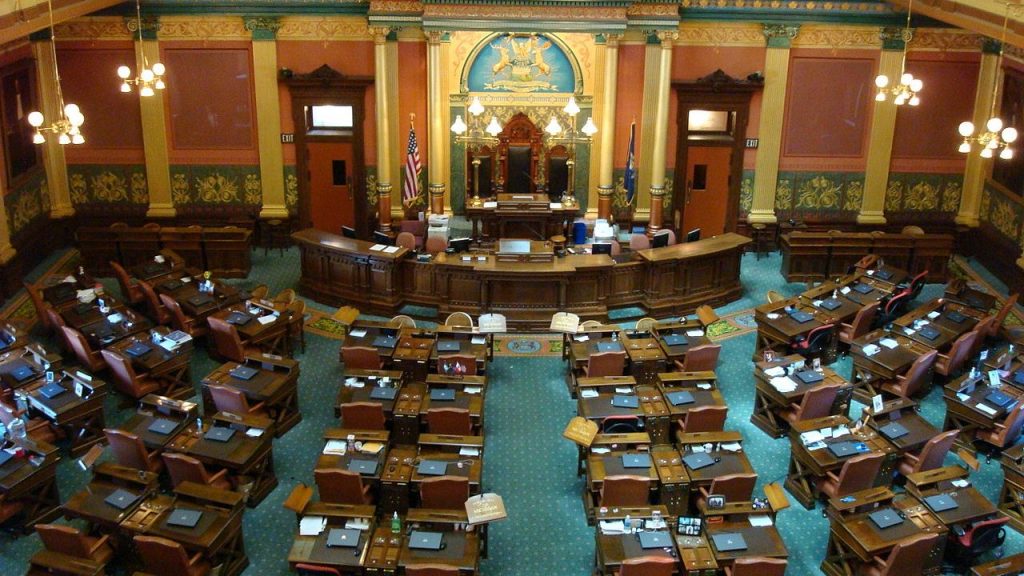Michigan House votes to allow prisoners some FOIA access
Colin Jackson June 17, 2024Under the bill, incarcerated people could request records relating to the arrest or prosecution of themselves or their children.

Michigan House of Representatives chamber.
Legislation on its way to the Michigan Senate would give prisoners some limited access to the state’s Freedom of Information Act.
Under the bill, incarcerated people could request records relating to the arrest or prosecution of themselves or their children. Bill sponsor state Rep. Stephanie Young (D-Detroit) said it’s as simple as that.
“All it does is allow folks to directly request their information, with guardrails. You can’t go off the rails and request all over the place. Your record and any minor children that you still have parental rights to,” Young said.
She said expanding those rights to people behind bars was a matter of recognizing their humanity.
Current state law bans incarcerated people from taking part in the Freedom of Information Act. The bill to expand that narrowly passed the House Wednesday, with one Republican voting in favor of the legislation and one Democrat opposing it.
Critics had expressed some concerns about any potential strain on either prison or local sheriff’s department resources the bill could cause.
State Rep. Bob Bezotte (R-Howell), who voted no on the bill, said he agreed prisoners should have some access to FOIA. But Bezotte said he worried about the potential impact the measure could have on crime victims.
“They would have to have their attorneys look at it. They could have access to maybe some of their personal information. There’s a number of things that could happen there that we need to protect the victims,” Bezotte said.
Young said the legislation shouldn’t produce any extra issues for those who house inmates in Michigan.
She stressed people outside of jail or prison can already request these types of records.
Young said her bill would just give inmates those same rights, without them having to go through a third party.
“When you talk to somebody who’s been wrongfully accused, wrongfully convicted and they’re telling you that they could’ve shaved 20 years off their sentence if they just had the access to their own files to be able to dig through them and find what actually gave them their freedom, I think that folks are going to use it,” she said.
The proposal is a follow-up to a bill from the last legislative session that never saw a floor vote.
Trusted, accurate, up-to-date.
WDET strives to make our journalism accessible to everyone. As a public media institution, we maintain our journalistic integrity through independent support from readers like you. If you value WDET as your source of news, music and conversation, please make a gift today.
